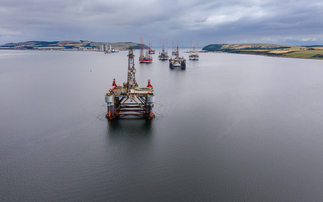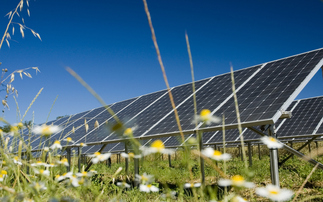How is the fossil fuel industry responding to growing pressure to address future emissions in the run-up to the Paris summit?
It is just under four months until COP21 gets underway in Paris, and momentum for a deal is building. Consequently, business attention should be starting to evolve from mulling the chances of a deal being agreed to considering what impact a treaty may have. This is particularly true of the sector likely to see the biggest impacts, and arguably with the most to lose, from an ambitious agreement: the fossil fuel industry. It is time to ask what the summit means for fossil fuel firms? Will it be business as usual, regardless of any deal, or does Paris spell the beginning of the end for those global players who refuse to adapt?
The growing talk of renewable energy and a carbon-free future can make it easy for some environmentalists to underplay the continuing importance of fossil fuels in the energy mix. But, as oil and gas businesses keep reminding us, they remain the dominant players on the global energy scheme and we can expect them to be around for decades to come.
Maria van der Hoeven, executive director of the International Energy Agency (IEA), recently highlighted how there was no future emission reduction scenario under which oil and gas do not play "a significant role". Speaking at Opec's International Seminar in Vienna, she said that fossil fuels will still account for 60 per cent of primary energy demand in 2040 even if the world proves successful at getting on a pathway to limiting temperature increases to 2C.
Will the carbon bubble pop?
However, that is not to say fossil fuel companies can expect to continue with business as usual following any Paris deal. Some investors are already growing increasingly anxious about the threat climate regulations pose to the value of fossil fuel reserves. A strong deal in Paris, or subsequent legislation to curb fossil fuel use, could leave much of their assets left in the ground, unburnable, and virtually worthless.
Warnings about the risk of a so-called "carbon bubble" are not confined to environmental campaigners. In April, HSBC said it believed the risk of stranded assets is rising, and both the Bank of England and the G20 have launched investigations into the issue in recent months.
The threat is not just from climate regulation. Shale gas and shale oil commonly break even at $80 per barrel; many such assets have been loss-making during recent months as low oil prices have continued.
HSBC also notes the growing impact of renewables, which is putting downward pressure on fossil fuel prices in many parts of the world as demand is curbed. This market instability is casting an ominous shadow over high-cost fossil fuel projects, such as Arctic drilling or Canadian tar sands. Earlier this year, Exxon Mobil and BP were forced to suspend their exploration programme in the Canadian Arctic, following spiralling extraction costs associated with drilling in such a remote location. Reports suggest the tar sands industry has been similarly hit by reduced investment and project suspensions as the implications of the low oil price have sunk in.
Jonathan Grant, director of sustainability and climate change at consultancy PwC, tells BusinessGreen the stranded assets question has forced investors to think about the future today. "The issue has turned what has previously been a long-term issue for energy companies into a short-term question for investors, and I think that has really provoked the energy companies into getting much more engaged on climate change this year," he says.
He adds that the pledges that countries have put forward for a deal in Paris, known as Intended National Determined Contributions for Paris (INDCs), are adding to the uncertainty. "Our analysis of the current targets suggests that governments are falling short of their long-term goal of limiting warming to 2C, and that they're somewhere between the business-as-usual pathway and the 2C pathway," he says. "So this leaves investors having to deal with the uncertainty of how carbon can be regulated in the future."
Some of this pressure came to a head in April at BP's annual general meeting, where an overwhelming majority of shareholders voted in favour of a resolution that will force the company to disclose the risks it faces from climate change.
Keen to get on the front foot ahead of the Paris meeting, a number of the industry's leading players recently issued an open letter to the UN calling for governments to introduce an international system of carbon pricing. Signed by six major oil and gas companies - Royal Dutch Shell, BP, BG Group, Eni, Statoil and Total - the letter said a price on carbon should be a key part of the "stable, long-term, ambitious policy frameworks" in development in Paris.
A spokesman for BG Group said the industry was hoping to calm investors and placate the markets with its call for a climate policy that would harness the power of the market to drive a gradual process of decarbonisation. "A stable, long-term, global carbon pricing framework would provide our business and many stakeholders with a clear roadmap for future investments, and a clear role in securing a more sustainable future," he said.
Although most commentators believe it is highly unlikely an international carbon price will be agreed at the summit, there is scope for extending the current patchwork network of carbon market schemes and putting in place a system to allow companies to trade emission allowances. Grant believes this markets-based system would be the best way to engage the private sector with carbon reduction targets.
Preparing for the demise of coal
But the letter also suggests a deepening rift within the fossil fuel industry. It distances oil and gas majors from coal, which as the most carbon-intensive fossil fuel would bear the brunt of any carbon price. "Their narratives are changing, and they're becoming slightly more disaggregated," Liz Gallagher, programme leader at E3G, tells BusinessGreen.
Grant agrees. "What's interesting about the recent statements from the oil and gas companies is now they are much more focused on the emissions from coal," he says. "They're pointing to the emissions from coal as the place to target first."
Anthony Hobley, chief executive of Carbon Tracker, the think tank that has pioneered much of the analysis of carbon bubble risks, also thinks the future is looking decidedly precarious for coal companies. "The companies that should be really worried are the sole coal players," he says. "Because where else do you go? That is your business model. You're at the most carbon-intensive, expensive end of the spectrum."
The IEA's World Energy Outlook, released in June, predicted coal demand will plummet by 45 per cent in US, Europe and Japan by 2030, while India's coal consumption will drop by a quarter, based on current pledges from national governments. A strong Paris deal only increases the chances of these predictions being borne out.
The tar sands and shale oil sectors could also find that an ambitious treaty that unleashes a wave of national emission reduction plans could have serious implications for developers, Hobley says, thanks to their high-cost, energy-intensive extraction processes. "If I was a tar sands company I'd also be getting very nervous," he argues.
In the face of these attacks, the coal industry insists it has a vital role to play in providing energy to the world's poor, and has called for greater investment in cleaner coal technologies, including carbon capture and storage systems, that would allow it to reduce its environmental impact.










